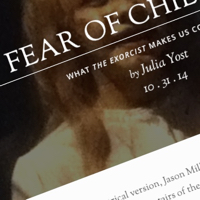Rascals case in brief
In the beginning, in 1989, more than 90 children at the Little Rascals Day Care Center in Edenton, North Carolina, accused a total of 20 adults with 429 instances of sexual abuse over a three-year period. It may have all begun with one parent’s complaint about punishment given her child.
Among the alleged perpetrators: the sheriff and mayor. But prosecutors would charge only Robin Byrum, Darlene Harris, Elizabeth “Betsy” Kelly, Robert “Bob” Kelly, Willard Scott Privott, Shelley Stone and Dawn Wilson – the Edenton 7.
Along with sodomy and beatings, allegations included a baby killed with a handgun, a child being hung upside down from a tree and being set on fire and countless other fantastic incidents involving spaceships, hot air balloons, pirate ships and trained sharks.
By the time prosecutors dropped the last charges in 1997, Little Rascals had become North Carolina’s longest and most costly criminal trial. Prosecutors kept defendants jailed in hopes at least one would turn against their supposed co-conspirators. Remarkably, none did. Another shameful record: Five defendants had to wait longer to face their accusers in court than anyone else in North Carolina history.
Between 1991 and 1997, Ofra Bikel produced three extraordinary episodes on the Little Rascals case for the PBS series “Frontline.” Although “Innocence Lost” did not deter prosecutors, it exposed their tactics and fostered nationwide skepticism and dismay.
With each passing year, the absurdity of the Little Rascals charges has become more obvious. But no admission of error has ever come from prosecutors, police, interviewers or parents. This site is devoted to the issues raised by this case.
On Facebook
Click for earlier Facebook posts archived on this site
Click to go to
Today’s random selection from the Little Rascals Day Care archives….
Click for earlier Facebook posts archived on this site
Click to go to
Today’s random selection from the Little Rascals Day Care archives….
Who killed the ritual abuse day care panic?
 April 9, 2012
April 9, 2012
“Where do epidemics go when they die?…. Have all the sadistic pedophiles closed down their day-care centers?”
– From “Mistakes Were Made (But Not by Me)” by Carol Tavris and Elliot Aronson
I asked Mary de Young, author of “The Day Care Ritual Abuse Moral Panic,” whether this epidemic might have gasped its last in Edenton as a result of “Innocence Lost.”
“Ofra Bikel certainly pounded a nail in its coffin,” De Young said. “Her excellent work on the Little Rascals case appeared after the last day care ritual abuse case was prosecuted, but she created a reason to be profoundly skeptical of all the cases that came before.
“I would give a lot of credit to Debbie Nathan (Village Voice) and Dorothy Rabinowitz (Wall Street Journal) for bringing an end to this craziness, but to be honest I think the moral panic really collapsed under its own weight – i.e., it was impossible to sustain these allegations in the absence of evidence, as well as to sustain the suspended disbelief that was required.”
‘Satanic ritual abuse’: A product of its era’s mythology

firstthings.com
Feb. 3, 2017
“Recall that after the 1970s there ensued a decade of moral panic over child sex abuse – including so-called satanic ritual abuse. Off-camera in The Exorcist [1973], the possessed Regan performed a Black Mass. In a film shot in the 1980s, her role in such satanic proceedings would have been quite opposite. In the mythology of that decade, the child is never a demon; the child is a victim of demons (i.e., pedophiles, satan-worshiping or not).
“Importantly, the tales of satanic ritual abuse that roiled the 1980s were nonsense, since discredited – as fantastical as any account of demonic possession. Yet they were believed, often beyond a reasonable doubt….”
– From “Fear of Children: What ‘The Exorcist’ Makes Us Confront” by Julia Yost at First Matters (Oct. 31, 2014)
![]()
Death noted: Former publisher of Edenton paper

Pete Manning
March 9, 2019
Pete Manning, 89, died Feb. 21 at his home in Edenton. Before retiring, Manning worked more than 50 years at the Chowan Herald, most prominently as publisher.
As prosecution of Edenton Seven lurched forward, members of the local “Believe the Children” cohort grew wary of the news media. Early on, however – before seeing themselves on “Frontline” — they had actually sought the spotlight.
Jack D. Grove, managing editor of the Herald, recalled that short-lived era to journalist David Loomis:
“I was approached by several influential businessmen who clouded up and rained all over me for putting a [Little Rascals] story on the back page. I said, ‘Go tell Pete Manning, don’t tell me.’ These businessmen, almost all parents of Little Rascals children, went into a closed-door meeting with Pete. We never again had a story anywhere but on the front page after that.”
Unfortunately, the Herald’s front-page coverage was painfully passive at best.
![]()
Suppose you gave a lynch party, and nobody came?
July 18, 2012
“Law enforcement officials are teaming up with social services experts to investigate and more effectively prosecute child sexual abuse in North Carolina day-care facilities….
“State Bureau of Investigation Director Charles Dunn said… the goal is to train up to 300 individuals in the state’s largest cities.
“Under the protocol, agencies in counties would establish guidelines for interagency task forces. Each task force would include an investigative unit and a resource unit.
“The typical investigative unit would include a child protective services social worker, law enforcement officer, consultant from the state day-care licensing agency and an SBI agent.
“The resource unit might include medical personnel, SBI lab experts, mental health workers and representatives of the attorney general’s and local district attorney’s offices…
“The General Assembly (this year required) SBI notification within 24 hours of any report of sexual abuse in a day-care setting. ‘The Little Rascals case really just helped to focus the public’s and the legislature’s attention,’ ” Dunn said.
– From the Associated Press, July 21, 1992
I suppose this massive response by the state could be described as closing the barn door after the horse is out – except, of course, for the absence of a horse in the first place.
Two decades have passed since all that staff training, protocol drafting and attention focusing, but apparently the state’s interagency task forces are still waiting to be activated for the next day-care ritual abuse case.











0 CommentsComment on Facebook